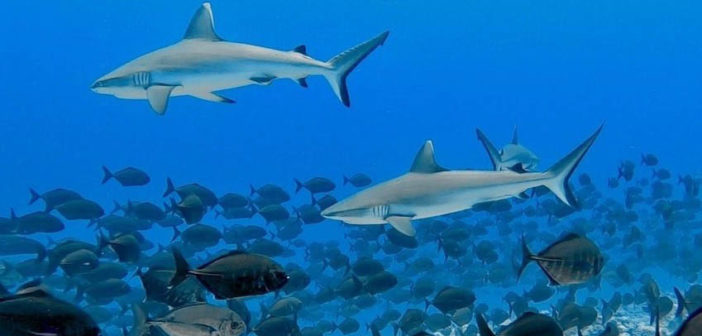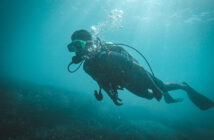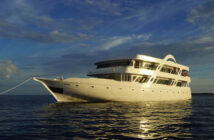Over recent weeks, there has been speculation about the possibility of the Maldivian government lifting the ban on shark fishing in the country’s waters. PADI®, and the dive industry at large, were instrumental in establishing these protections over a decade ago.
With concern for the continued protection of sharks in the Maldives, the PADI organization and Project AWARE®, along with 200 concerned local and international stakeholders opposing the lifting of the shark fishing ban, called on the government to continue to enforce the legal protections of sharks. PADI staff met with Maldivian Ministry of Fisheries, Marine Resources, and Agriculture Zaha Waheed to reinforce the position of the dive community and critical role sharks play in dive tourism.
In those meetings, Minister Waheed assured PADI that the Ministry of Fisheries, Marine Resources, and Agriculture has no intentions to lift the ban on shark fishing. She affirmed that they remain committed to sustainable and responsible management of fisheries and marine resources in the Maldives. On 20 April 2021, the Ministry of Fisheries, Marine Resources, and Agriculture released a statement asserting that “the Maldives does not intend to permit a targeted shark fishery in the Maldives.”
“Sharks are a dominant force in dive tourism in the Maldives. We congratulate the Maldives’s commitment to their ongoing protection,” says Drew Richardson, President and CEO of PADI Worldwide. “The Maldives continues to lead by example, among the most progressive countries on this critical issue.”
There are currently 17 shark sanctuaries in the world; the first established in Palau in 2009 and others in popular dive destinations including French Polynesia, Honduras, The Bahamas and several others in the Caribbean. The Maldives shark sanctuary was established in 2010 and covers 916,000 km2 (353,000 square miles).
Tourism accounts for an estimated 25 percent of Maldives’ GDP (according to 2014 figures), with diving and snorkeling being the most popular tourism activity. Prior to the formation of the Maldivian sanctuary, shark fishing was worth US$0.7 million to the Maldives’ economy, compared to US$2.3 million from shark tourism. In 2018, the shark sanctuary increased dive-trip demand in the Maldives by 15 percent, raising an additional US$6 million. Consumer research indicates that any re-opening of a Maldives shark fishery could potentially decrease dive tourism demand by over 50 percent, which could result in a loss of US$24 million.
Sharks are some of the most endangered species in the ocean, with recent research showing that the global number of oceanic sharks has declined by 71 percent. Over a third of shark and ray species are threatened, facing an increased threat of extinction, primarily due to overfishing. There are an estimated 600,000 shark watchers globally spending $314 million per year and directly supporting 10,000 jobs. Research indicates these figures are expected to rise as global tourism returns to pre-pandemic levels.
As part of its commitment to ocean conservation, PADI will continue to stand up for sharks and advocate for their protection. For more information on responsible shark tourism, read Project AWARE’s Guide to Best Practices. To learn more about PADI’s efforts and how you can join the community of PADI Torchbearersä working to save the ocean, visit padi.com/conservation









